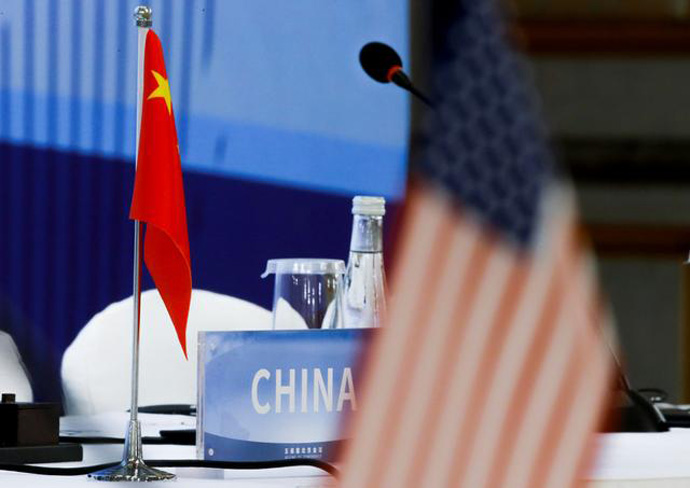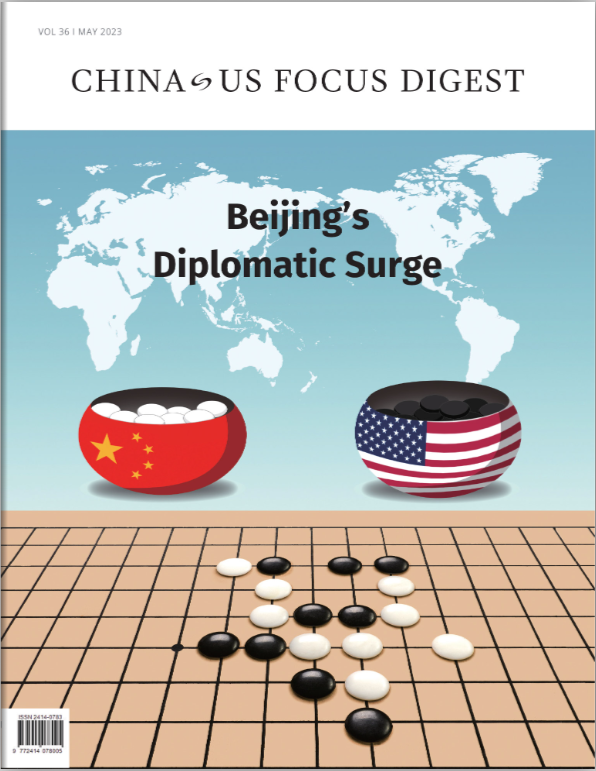
When Tony Blinken last visited Beijing in 2016, he was there together with a large, cross-departmental delegation attending a range of bilateral dialogues. Those were better days for China-U.S. relations. Back then, perhaps even Blinken himself might not have thought that this relationship would take a drastic turn and hit “the lowest point” when he visited Beijing again – after a hiatus of seven years.
What has gone wrong? Some, like Graham Allison, posit that such deterioration of ties between the established and emerging powers is inevitable. Signs of trouble already emerged during the Obama era with his “pivot” to Asia. The destructive Trump years deepened that sense of inevitability, something which is still being felt, if not more acutely, under Joe Biden.
The Biden administration’s China policy seems schizophrenic, to put it bluntly. It is quick to make promises on China’s concerns, including not seeking a new Cold War, not aiming to change China’s system, not using U.S. alliances against China, not supporting “Taiwan independence,” and not looking for conflict with China. Some even counted 11 such assurances when Biden met with Chinese President Xi Jinping in Bali late last year.
But in action the Biden administration goes in the opposite direction. The “democracy vs. autocracy” narrative, the confrontational posture of groupings such as QUAD and the allegation of Chinese spying in Cuba all hark back to U.S. Cold War rivalry with the Soviet Union. Many people, and not just in Beijing, sense deliberate attempts to revive Americans’ collective memory of the Cold War so as to drum up support for more China-bashing. Worse still, the U.S. has intensified provocations by allowing Taiwanese leader Tsai Ing-wen to “transit” in the U.S. and augmenting official engagement with Taiwan, despite the clear red line drawn by China. To Chinese officials and people, all this represents an outrageous breach of what the two presidents agreed to in Bali.
Click to read the China-US Focus Digest
Even in areas where it is seeking Chinese help, the U.S. has done nothing but harm to the atmosphere for cooperation. Fentanyl is a case in point. Without strong regulation at home to curb the demand for the drug, the fentanyl crisis is very much one of America’s own making. China has scheduled all fentanyl-related substances four years ago, which the U.S. asked China to do but hasn’t got done itself. One has to be pretty thick-skinned to ask China to take the further step of banning the precursors, which are perfectly legal chemicals traded around the world. And instead of asking nicely, the U.S. has sanctioned Chinese law control agencies, and has charged Chinese nationals and companies it recently ensnared in a sting operation on the heels of Blinken’s visit. It’s hard to imagine anyone willing to help or cooperate with the U.S. when all they get is smearing and coercion.
Climate change is another area of collaboration where China feels betrayed. While pressuring China for climate cooperation, the Biden administration has detained large quantities of imported made-in-China solar panels at its border.
Then there is the open lines of communication with China, a major U.S. concern that has also fallen victim to its own caprice. Secretary of Defense Austin has sought to meet with his Chinese counterpart, but the U.S. has put him under sanctions and in the meantime sent more military personnel to Taiwan, knowing that both moves would infuriate the Chinese.
Before or after high-level meetings, idiosyncratic events would happen to poison the atmosphere, a balloon-shooting drama, a Cold War-style story about alleged spying from Cuba, and indiscreet presidential remarks that send mixed signals. The list goes on and on.
What lies under these U.S. moves is a profound shift in how it sees and approaches China. The U.S. declared that its decades-long approach of engagement with China had failed and opted for a much tougher course against what it viewed as its “most consequential geopolitical challenge.” Such a change in perception has as much to do with China’s rise as America’s fixation on its leadership role in the world.
The U.S. tends to see the world through the lens of its own history. As victor in two world wars and the Cold War, the U.S. is used to being on the winning side. Its history has not been long enough for it to experience a serious decline that dethrones it as the world’s superpower. This has reinforced a sense of American exceptionalism and a belief that it will defy the trend toward a multipolar world and forever remain the only hegemon on the planet.
Such a worldview has been shaken by the rise of China. Even without any desire to displace the U.S., China’s growing ability to do so is enough of an original sin for the U.S. to heighten its bashing, isolation and kneecapping of China. This has in turn dampened China’s confidence in forging a peaceful, cooperative relationship with the U.S. What was known as strategic mistrust deteriorated into strategic distrust, and the Biden administration’s say-do gap has certainly not helped. China has come to suspect that the U.S. is only giving assurances for political expediency without ever planning to deliver them. It explains why the Chinese side has become less interested in talking to the U.S.
That said, the Chinese did its part in being a gracious host. Blinken talked to all the people on his wish list. His meeting with CPC Central Foreign Affairs Office Director Wang Yi and State Councilor and Foreign Minister Qin Gang lasted over eleven hours. The Chinese readout is principled and rational with even positive mention of areas of agreement between the two sides, a rarity in recent years.
Now, the ball is in the U.S. court. The Chinese side will certainly keep a watchful eye on U.S. follow-up actions. Blinken’s visit and pacifying words are not enough to thaw the relations if U.S. actions suggest otherwise. It is time for the Biden administration to show some consistency. When it comes to major-power interactions, cut-throat competition and hostility are dangerous, but not so much as misreading of intentions and double-dealing.


